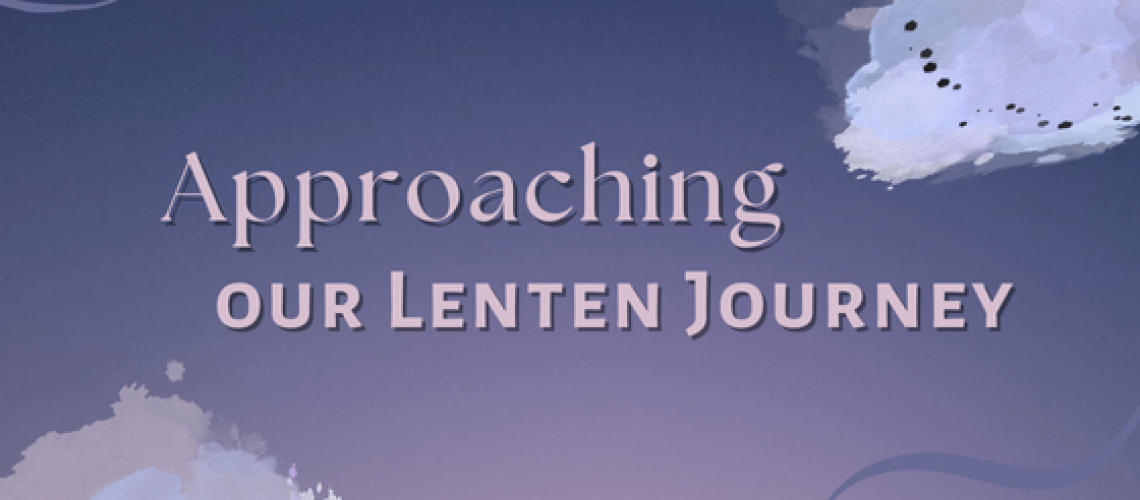- To start with where we are going – to the Cross where we are healed, forgiven, and reconciled to God and others.
- To heal what is broken, so that we are one as we journey to the Cross, which leads to the empty tomb.
- To look in the eyes of friends and strangers and be reconciled to them, your community, the Church as a whole, God, and the whole world.
We typically think of forgiveness as, you did something to me that hurt me, and forgiving you means I decide to let go of any anger I have at you. However, forgiveness really is less about me letting you off the hook and more about me letting myself off the hook, because:
- The burden of carrying anger at you is burdening me more than you.
- How can I hold anything against anyone, as I am flawed and fall short all the time.
Forgiveness allows for restored peace in relationships and within your own heart. In the same way that unforgiveness is divisive and burdensome, we also create divisions by putting up walls between ourselves and other people we don’t even know. When you think about it, we hold things against people who we don’t know all the time. That person or even group of people may not ever have seen my face, but somehow I’m holding anger against them.
So when we ask forgiveness of a stranger during the forgiveness service, it’s because coming together with ALL and being at peace with ALL is what God intends for us ALL. We are Church when we are one. St. Paul emphasizes this in 1 Corinthians 11:17-21:
Now in giving these instructions I do not praise you, since you come together not for the better but for the worse. For first of all, when you come together as a church, I hear that there are divisions among you, and in part I believe it. For there must also be factions among you, that those who are approved may be [b]recognized among you. Therefore when you come together in one place, it is not to eat the Lord’s Supper. For in eating, each one takes his own supper ahead of others; and one is hungry and another is drunk.
We are not Church when we are divided. Holding on to a division or creating division isn’t natural for humanity. Even from a distance, we cast judgment and draw lines between ourselves and one person, or even a whole group of people. The epistle from yesterday, the Sunday of Forgiveness, emphasizes how crucial it is that we welcome all people without judgment:
Brethren, salvation is nearer to us now than when we first believed; the night is far gone, the day is at hand. Let us then cast off the works of darkness and put on the armor of light; let us conduct ourselves becomingly as in the day, not in reveling and drunkenness, not in debauchery and licentiousness, not in quarreling and jealousy. But put on the Lord Jesus Christ, and make no provision for the flesh, to gratify its desires. As for the man who is weak in faith, welcome him, but not for disputes over opinions. One believes he may eat anything, while the weak man eats only vegetables. Let not him who eats despise him who abstains, and let not him who abstains pass judgment on him who eats; for God has welcomed him. Who are you to pass judgment on the servant of another? It is before his own master that he stands or falls. And he will be upheld, for God is able to make him stand. Romans 13:11-14; 14:1-4
St. Paul’s powerful words here remind us that we are to approach each other with love, not to despise each other or cause disputes over varying behaviors or opinions. This question should ring in our ears: Who are you to pass judgment on the servant of another? I am not anyone’s master, so it is never my place to pass judgment on a servant of God. It’s our love, not our opinions, that actually bring light in the darkness. Welcoming all makes room for relationships and whole communities to be transformed. How willing are we to welcome anyone? How willing are we to say, “I may not understand or share your perspective, but I am not your judge. Let’s eat together! Come sit at my table because we belong to Jesus, therefore we belong to each other.”
The intensified prayer, fasting, and giving to others is meant to bring about reconciliation. The walk of the Christian during Lent, or otherwise, is not about shining a light on yourself for doing all the right things. It’s about disappearing so that Christ can live in your for the sake of the world. It can be easy to rest in the rituals that the church gives us. If we are doing all the right things…attending the services, fasting, and giving charitably…then we might tie a bow on living our faith in the proper way and call it a day. The reality, though, is that our faith is not a list of whats. Our faith is a WHO.
Often we ask: What do we believe? A better question is: Who do we believe in? To know who we are is not to know what to do. It’s to know Jesus Christ. To know Him is to know ourselves. To seek Him is an act of love that never ends. The actions of Lent are meant to bring our hearts back to God. Every choice to be disciplined at meals is meant to give us the strength to choose to turn back to God. Every additional service that we choose to attend it to lead us to be attentive to God and others. Every dollar we give reminds us of a person who is suffering and leads us towards them. Lent is a walk to the Cross with Christ. It is an opportunity for renewal and reconciliation. Our Lenten prescriptions given by the Church are meant to offer the support and community we need for this walk. They are meant to draw us to Christ so that we can live into who we truly are – people who love as our Lord loves.
“I give you a new commandment, that you love one another. Just as I have loved you, you also should love one another. 35 By this everyone will know that you are my disciples, if you have love for one another.” – John 12:34-35
To follow Christ is to be one who has love for one another…who loves as He did. This walk to the Cross with Christ is what should always be our reality. The Lenten journey and the empty tomb wake us up to what we should awake to every morning. The tomb allows us to put to death what pulls us away from the Lord and others so that we can truly live in the light of the empty tomb. The light shows us where our eyes need to be…on the Lord and the person in front of us. We can eat vegetables all we want, but that action is empty if we don’t feed the one who is hungry. We can rejoice in being at services 5 times a week, if being in the Lord’s house calls us to better serve those in our own homes. Truly serving the Lord isn’t simply participating in the rituals of the Church and feeling that we’ve won; These rituals are meant to shape us into followers of Christ who welcome all people and heal all divisions.
Let us pray that the actions of Lent heal our divided hearts, relationships, and communities, so that we may turn back to our Lord and love others as He did.
-Katrina Bitar, YES Program Director




